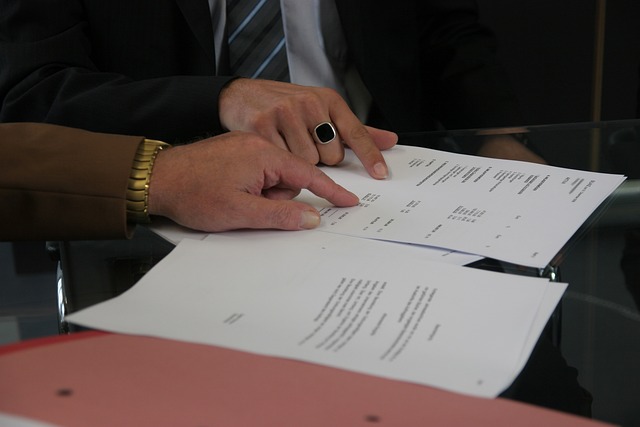In the field of historical research, UK Historical Documents Translation Services play a vital role in preserving cultural legacies and ensuring accurate interpretations of past events. These services handle fragile, century-old documents with specialized knowledge, advanced techniques, and meticulous care to maintain authenticity. Selecting a reputable provider with expertise in ancient texts and historical context is crucial. The process involves digitizing, editing, and preparing documents for translation, followed by a rigorous analysis, native-speaker translation, quality control, and formatting. These services prioritize accuracy, cultural appropriateness, security, and global accessibility while preserving the integrity of UK historical records.
In today’s globalised world, accurate translation of historical documents is paramount, especially in the UK where cultural heritage is deeply valued. This article delves into the seamless process of translating UK historical documents, addressing key considerations from initial consultation to final delivery. We explore best practices for maintaining original context and meaning while navigating legal and technical challenges unique to historic records. By understanding the importance of precise translation and selecting the right service provider, institutions can preserve their historical tapestry effectively.
- Understanding the Importance of Accurate Translation
- The Challenges of Translating Historical Documents in the UK
- Selecting the Right Translation Service Provider
- Preparing Your Documents for Translation
- The Process: From Initial Consultation to Final Delivery
- Ensuring Quality and Consistency in Translations
- Legal and Technical Considerations for Historic Document Translation
- Best Practices for Maintaining Original Context and Meaning
Understanding the Importance of Accurate Translation

In the realm of historical research and heritage preservation, accuracy holds paramount importance, especially when it comes to document translation. When dealing with UK historical documents, ensuring precise and faithful translations is crucial for maintaining the integrity of historical records. A single misinterpretation can lead to significant errors, skewing our understanding of past events, cultures, and societies.
UK Historical Documents Translation Services play a vital role in facilitating access to these precious artifacts, enabling scholars, researchers, and the general public to explore and appreciate diverse cultural legacies. Accurate translation not only preserves the meaning but also respects the nuances, idioms, and historical context inherent in the original text. This meticulous process demands linguists with specialized knowledge, an in-depth understanding of historical terminology, and a keen eye for detail, thereby guaranteeing the authenticity and reliability of translated documents.
The Challenges of Translating Historical Documents in the UK

Translating historical documents in the UK presents a unique set of challenges due to their often fragile state and the specialized knowledge required for accurate interpretation. These documents, spanning centuries, carry profound cultural weight and demand meticulous care during translation. The process involves not just language conversion but also understanding the historical context, archaic terminology, and intricate details that may be essential to preserving the document’s authenticity and meaning.
UK Historical Documents Translation Services play a vital role in ensuring these treasured records are accessible to modern audiences while maintaining their integrity. Professionals in this field must possess a deep understanding of historical periods, cultural nuances, and linguistic evolution. They employ specialized techniques, including consulting with historians and subject matter experts, to overcome the challenges posed by old scripts, encryption, and obscure references.
Selecting the Right Translation Service Provider

Choosing the right translation service is pivotal for ensuring a seamless process in UK historical documents translation. Look for providers with expertise in handling ancient texts and specialized knowledge of historical context. This ensures accuracy in conveying the nuances and intent of the original document. Reputable firms should offer native-speaking translators who are well-versed in both the source and target languages, guaranteeing fluency and cultural appropriateness.
When selecting a service, consider their track record and client testimonials. Opt for companies that prioritize security and confidentiality, especially when dealing with sensitive historical records. Advanced technologies like machine translation, post-editing, and quality assurance processes also contribute to efficiency and precision, making the document translation experience smooth and reliable.
Preparing Your Documents for Translation

Preparing your documents for translation is a crucial step in ensuring a seamless process, especially when dealing with sensitive historical records like those from the UK. These documents often contain intricate details and unique terminology that require meticulous handling. The first step involves digitising your physical copies to create a clean, editable digital format. This allows translators to access and work on the content without risk of damage or loss during scanning.
Next, it’s essential to edit and proofread the documents yourself. Remove any unnecessary formatting, tables, or images that might confuse translators. Standardise text styles and ensure consistency in terminology. Also, provide clear instructions regarding target languages and specific cultural nuances to guide the translation process, making your historical documents ready for expert UK Historical Documents Translation Services.
The Process: From Initial Consultation to Final Delivery

The translation process for UK historical documents involves a meticulous journey from initial consultation to final delivery, ensuring accuracy and cultural sensitivity. It begins with an in-depth meeting where our expert team discusses the document’s unique characteristics, its historical context, and the target audience. This step is crucial as it sets the foundation for the entire project.
We then proceed to a thorough analysis of the text, employing advanced tools to capture every nuance. Following this, our translators, who are native speakers with specialized historical knowledge, translate the document while adhering strictly to agreed-upon terminology. Quality control checks are performed at each stage, ensuring consistency and precision. The final step involves formatting and delivering the translated document, which is then ready for its intended use, be it academic research or cultural preservation.
Ensuring Quality and Consistency in Translations

In the realm of UK historical documents translation services, ensuring quality and consistency is paramount. Professional translators go beyond mere word-for-word substitutions to grasp the nuances and context of the original text, thereby delivering accurate and culturally sensitive renditions. This meticulous process involves rigorous quality control measures, including proofreading, editing, and peer review, to maintain consistency in style, terminology, and tone across every document.
Advanced tools like translation memory software and terminological databases further enhance accuracy and efficiency. These resources facilitate the reuse of previously translated terms, ensuring a unified and coherent translation throughout. By adhering to these stringent standards, UK historical documents translation services not only preserve the integrity of the source material but also make it accessible to a broader audience, facilitating global understanding and research in history and culture.
Legal and Technical Considerations for Historic Document Translation

When translating historic documents, especially those from the UK with legal significance, meticulous care is required to preserve both meaning and authenticity. Legal and technical considerations are paramount in this process, ensuring that historical context, terminology, and formatting are accurately conveyed in the target language. Specialized UK Historical Documents Translation Services employ linguists with expertise in these areas, often accompanied by subject matter experts to navigate the nuances of ancient laws, customs, and terminologies.
The challenge lies in balancing accuracy and fidelity to the original while adapting it for modern-day readability and comprehension. Technical aspects such as formatting, layout, and even paper type may need attention to maintain the document’s integrity. These services employ advanced tools and methodologies, including machine translation with human review, to handle large volumes while maintaining precision. They also ensure compliance with industry standards and regulations, crucial for preserving the legal validity of historical documents in their translated form.
Best Practices for Maintaining Original Context and Meaning

When translating historical documents, especially those from the UK with their unique linguistic nuances and cultural context, maintaining original intent is paramount. Best practices involve close collaboration between translators and scholars to ensure accuracy in conveying meaning across languages while preserving the document’s historical value. This process includes thorough research into historical terminology, legal jargon, and idiom to avoid misinterpretation or loss of nuance.
Additionally, utilizing translation memory tools can significantly enhance consistency and quality. These tools store previously translated segments, allowing translators to access and re-use accurate phrases, ensuring a seamless flow in the final document. Such practices are crucial for UK Historical Documents Translation Services, where every word must be handled with care to do justice to the source material’s significance.
The seamless translation of UK historical documents requires a meticulous approach, addressing both linguistic nuances and contextual preservation. By selecting reputable services that understand the significance of accurate translations, preparing documents thoroughly, and adhering to best practices, organizations can ensure their historical records remain accessible and reliable for future generations. Choosing the right translation service provider is key to navigating this intricate process successfully, enabling meaningful connections across linguistic barriers.
